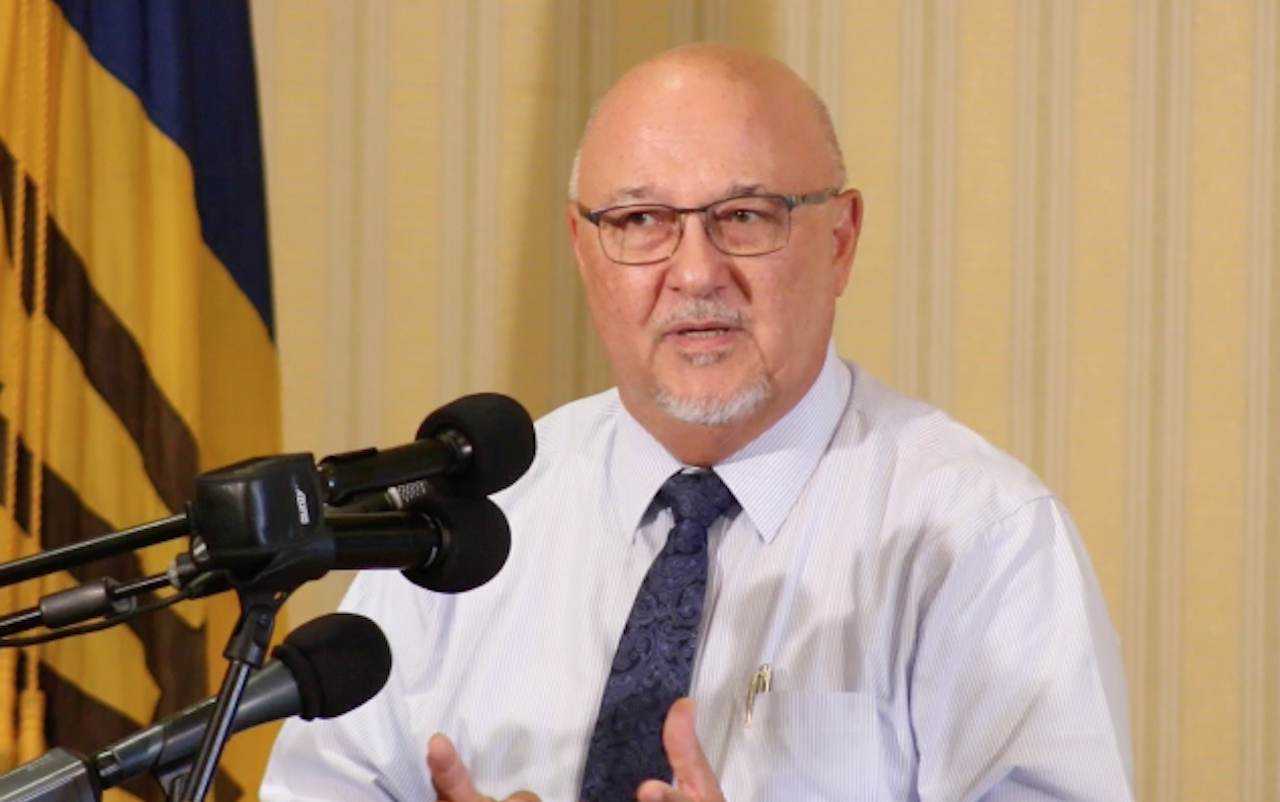The decision by one of this island’s largest and most prominent retailers to consider giving up its investment in Duty Free Caribbean Holdings Ltd. (DFCH) after decades, comes as no surprise to head of the Barbados Private Sector Association (BPSA) Ed Clarke.
In fact, Clarke told Barbados TODAY that many businesses were still trying to recover from the 2008/2009 financial meltdown when the dreaded COVID-19 pandemic struct and simply made matters worse.
“COVId-19 has now been the last straw on the camel’s back,” said Clarke in his reaction to the news.
In a message to shareholders earlier this week, Chief Executive Officer of Cave Shepherd & Co. Ltd. John Williams and Chairman Sir Geoffrey Cave announced that the Cave Shepherd Group was considering pulling out of DFCH.
This decision, which would include restructuring across the operations, follows a $37.7 million loss for the first half of this financial year.
The company cited massive losses as a result of the tourism industry coming to a halt because of the COVID-19 pandemic, which it said worsened an already difficult time due to hangovers from the global financial crisis.
In the notice that was published on Wednesday, the officials said the financial services – SigniaGlobe Financial and Fortress Fund Managers – were expected to “generate increasing income”.
Clarke told Barbados TODAY that it was somewhat expected of companies to restructure their operations at this time “to stay alive” as a company.
“It is not a surprise to me, and I don’t think it will be a surprise to many people. They have had to restructure their organisation and their strategy going forward. So I think it is a company that is very focused in the tourism industry and related services, different to their financial services,” said Clarke.
“I think Cave Shepherd is still pretty strong in the financial services sector. But the retail sector is a different ball game these days as everyone would know, and based on their type of business it is really no surprise that they have had to make a serious decision about the structure of their company,” he added.
Acknowledging that other businesses have already closed or restructured their operations, Clarke warned that there was a possibility that others could do the same given the uncertainty associated with the enduring pandemic.
“This is not something that is going to go away overnight,” he said. “This is not a three-month thing or a hurricane. This COVID-19 pandemic is going to last longer than we would like.
“We have seen the mess that there is in North America still, and the impact that is going to have on the overall travel industry. Our economy is still extremely dependent on the tourism sector. That is hard to replace,” said Clarke.
He pointed out that the tourism sector, both direct and indirect, employs thousands of workers in a wide range of areas from distribution, supplies, manufacturing, wholesale and retail, and the employment opportunities were simply not there with the travel industry now restarting in some areas and at a standstill in others.
This, he explained, would create a knock-on effect where people would then have less money to spend, resulting in more people having to prioritize.
At the same time, Clarke said the private sector operators were trying their best to do what they could to keep commerce alive so they could be around after some level of normalcy returned and then they would be in a position to hire more.
“I think what we are seeing is that people are trying to find a different way of marketing, different use of technology and lower cost operations to try and stay in business while providing a level of service to the client base that they need. And what you are seeing now is many more people buying what they need rather than what they want because of the uncertainty in the economy and uncertainty of their employment,” he explained.
“I think it is people managing their spend and as a result the businesses will expect to have lower revenue streams at this time. We have to try and get through it. We are doing our utmost, most of us in the business sector, to try and stay afloat, but it means trimming costs and trying to be there when things pick back up. If you don’t do that now you will not be there when things pick back up,” he added.
And with the economy set to lose the majority or all of the estimated $80 to $120 million generated during the annual June to August Crop Over festivities, Clarke said this was another area of concern since those three months were generally also “slow” for businesses.
He explained that in addition to local spend for various events, the absence of visitors from around the world for the festivities would be “badly missed”. The Crop Over festival would have climaxed on Monday, August 3 this year.
“There is no doubt we will badly miss the Crop Over spend this year,” he said.
“The private sector certainly – all the small businesses, the medium and large businesses – there is nobody in the business sector who is not going to miss Crop Over because once again it is the wide cross-section of the Barbadian community that benefits from this spend,” said Clarke.
marlonmadden@barbadostoday.bb




